Go the extra mile
Towards a cooler planet
Boeing's sustainable aviation fuel initiative in the USA
1 January 2023
Boeing, the world’s largest aircraft and aerospace company, has embarked on a new project to enhance Sustainable Aviation Fuel (SAF) usage across the U.S. and globally, aiming to make air travel fully carbon-neutral by 2050. The company plans to leverage its resources and partnerships to reduce the environmental impact of aviation by lowering emissions and advancing SAF technology.
SAF has the potential to decrease CO₂ emissions by up to 85% compared to conventional jet fuel, though it currently accounts for only 0.1% of global jet fuel usage. In response, Boeing is actively working to scale SAF production and improve infrastructure to support its widespread adoption. Since 2022, Boeing has purchased 7.6 million gallons of SAF for its U.S. flights, underscoring its commitment to sustainable practices. The company’s ambitious goal includes incorporating 20% SAF across its fleet in the near term, with an objective for all new aircraft to be capable of 100% SAF by 2030. This initiative represents a significant shift towards more sustainable aviation, highlighting the industry's urgency to transition to cleaner fuel options
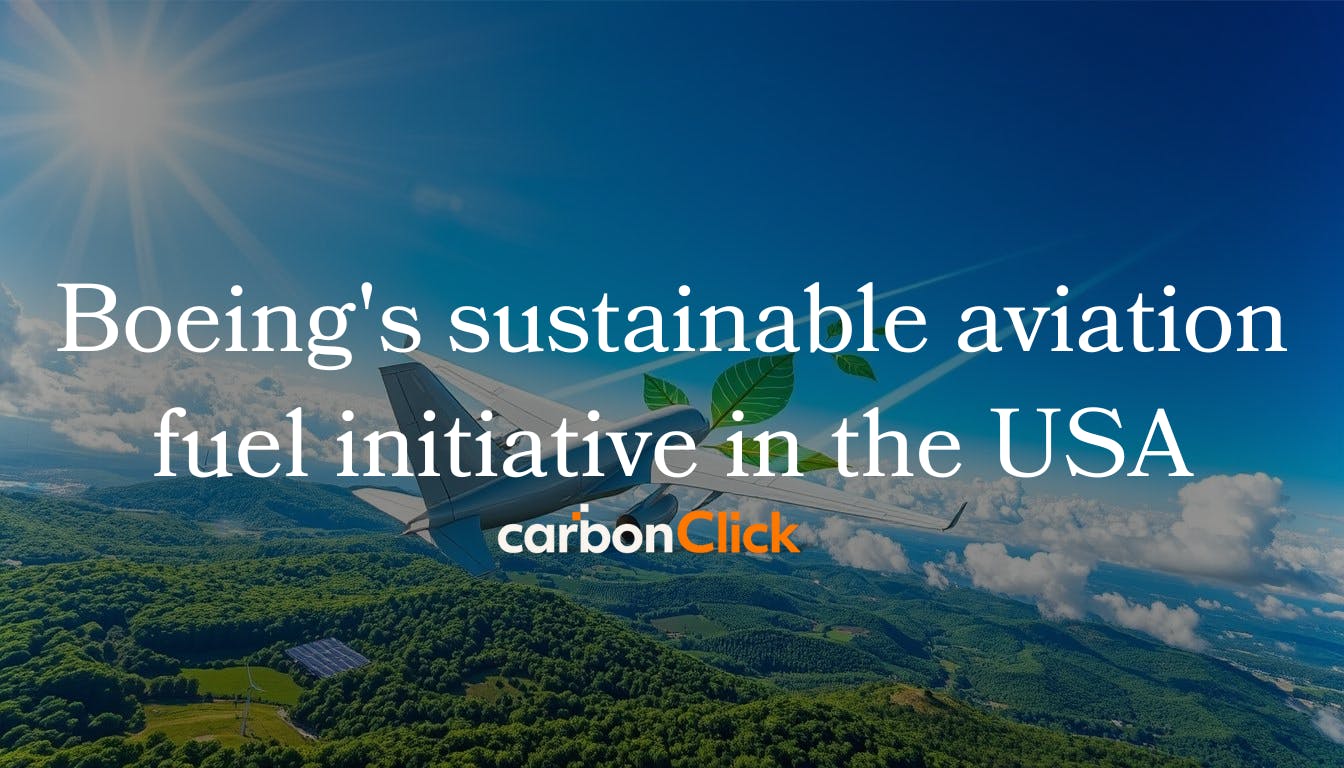
Introduction to sustainable aviation fuels
Sustainable Aviation Fuels (SAF) have the potential to reduce carbon emissions from jet fuel by up to 84%. These fuels are produced from renewable sources, such as agricultural waste and non-edible vegetable oils, and are integral to the aviation industry’s goal of achieving a 50% reduction in emissions by 2050.
What are sustainable aviation fuels?
Sustainable Aviation Fuels are liquid biofuels, termed "drop-in fuels," that can replace up to 50% of conventional jet fuel. They are compatible with existing commercial aircraft engines and fuel systems, requiring no modifications to support cleaner aviation.
The importance of aviation sustainability
Using solutions like SAF is essential for the aviation sector's transition towards net-zero carbon emissions by 2050. This change is critical for reducing the broader environmental impact of air travel and addressing pressing climate concerns.
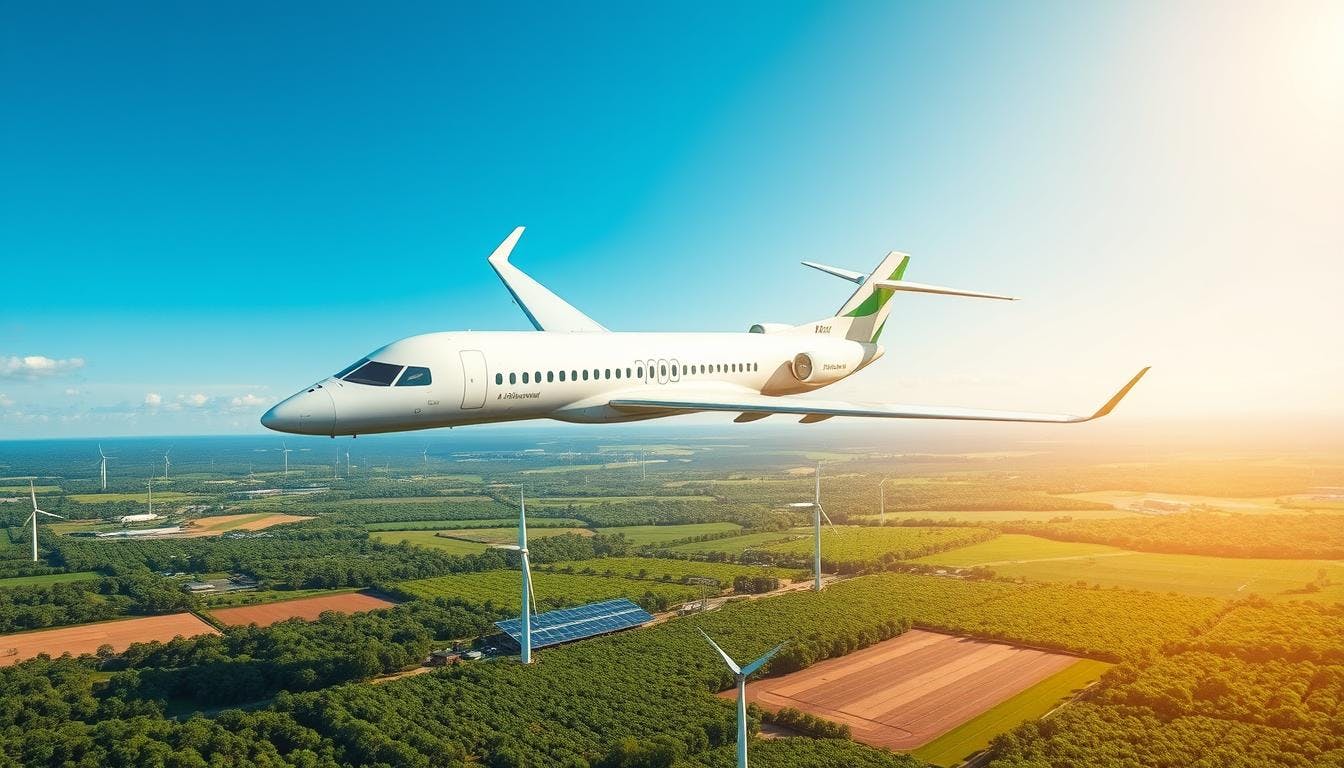
Boeing's commitment to sustainability
Boeing is committed to reducing aviation emissions, working towards cleaner skies. The company has set ambitious environmental goals, aiming for a 25% reduction in greenhouse gas emissions by 2025—a goal in line with its already achieved 37% cut in emissions. By 2030, Boeing plans to ensure all its aircraft can operate with 100% Sustainable Aviation Fuel (SAF), a key element in lowering the aviation sector's environmental footprint.
In 2024, Boeing plans to purchase 9.4 million gallons of SAF blends for its U.S. operations, representing a 60% increase from 2023. This move supports the company’s strategy of increasing SAF usage to promote industry-wide sustainability efforts.
Boeing’s efforts are having a marked effect on the aviation industry, with its newer aircraft models achieving fuel efficiency improvements of 20-30% over older models. Through collaboration with other industry leaders, Boeing is driving emission reductions of around 10%, contributing significantly to the sector's progress toward more sustainable practices. The company has also made strides in reducing its energy, water, and waste outputs, setting a strong example within the aviation industry.
Current development of sustainable aviation fuels in the USA
The United States is advancing sustainable aviation initiatives, with Boeing playing a key role. Partnering with the U.S. Department of Transportation and the Federal Aviation Administration, Boeing is working to expand Sustainable Aviation Fuel (SAF) use across the Asia-Pacific Economic Cooperation (APEC) nations. This collaboration focuses on identifying sustainable SAF feedstocks, optimising production methods, and establishing SAF-specific policies to support growth and accessibility within APEC member countries.
Boeing's recent work with Zero Petroleum and its involvement in the Roundtable on Sustainable Biomaterials demonstrate its commitment to enhancing SAF technology and expanding fuel sources domestically. These advancements contribute to a more sustainable future in aviation, aligning with the industry’s goal of reducing carbon emissions by developing more efficient aircraft and using renewable fuel sources.
This initiative not only aims to make air travel more sustainable but also showcases the collective effort across stakeholders—including fuel producers, logistics providers, and academic institutions—to drive the aviation sector toward a cleaner future.

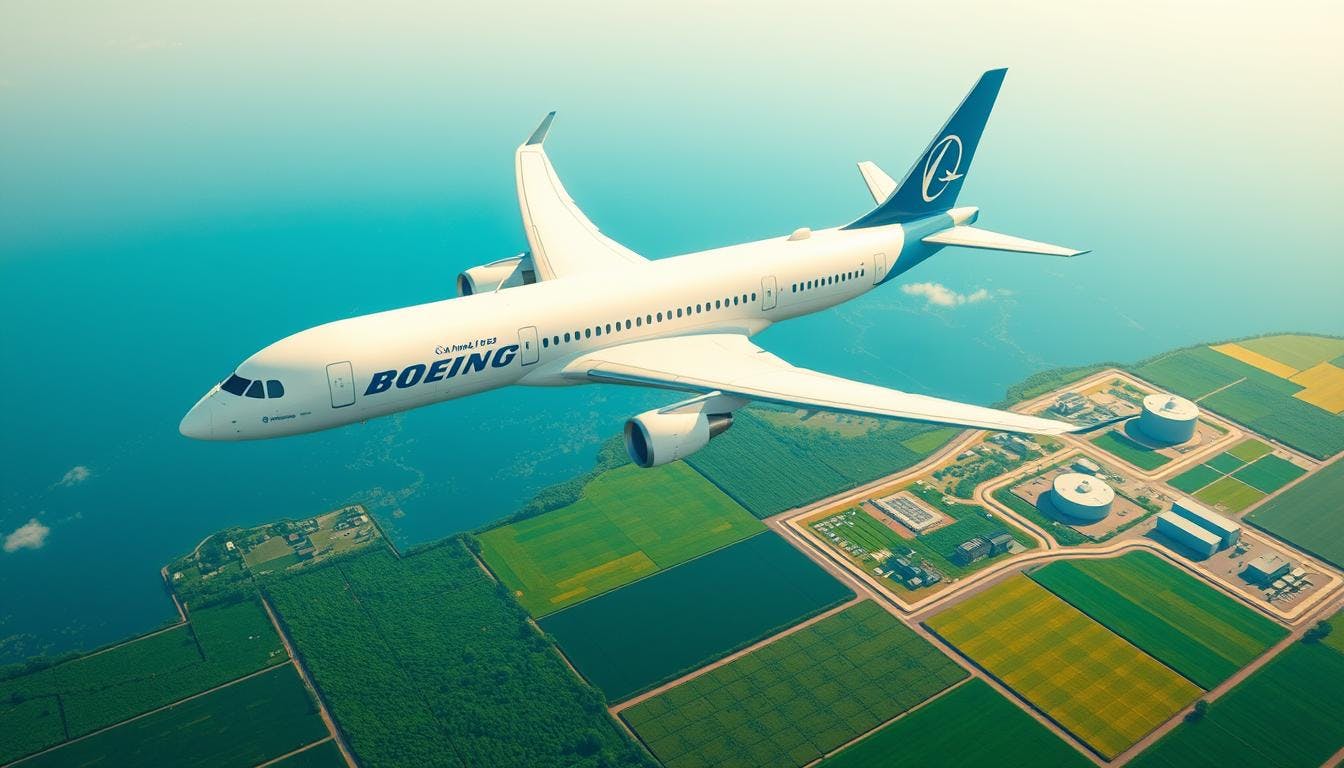
Economic implications of sustainable aviation fuels
The use of Sustainable Aviation Fuel (SAF) holds significant potential for job creation and economic growth within the aviation industry. Research from NASA and collaborations with Boeing and GE Aerospace reveal that SAF can substantially reduce harmful emissions, which is essential for aviation’s environmental impact. However, production costs for SAF remain high, presenting a substantial hurdle for broader adoption across the industry.
Job creation and industry growth
As demand for more sustainable flight options increases, employment in SAF production is likely to expand. Key players like NASA, Boeing, and GE Aerospace are advancing SAF technology through collaborations. Their shared objective is to make aviation carbon-neutral by 2050, a commitment reinforced by the aviation industry’s efforts to develop more sustainable propulsion systems, such as GE's work on hybrid electric and open-fan engine technologies.
Cost implications for airlines
Currently, SAF only accounts for a minimal portion of jet fuel usage due to high costs and limited supply. Efforts to address this include partnerships with groups like the Clean Skies for Tomorrow Coalition, which has set an ambitious target for 10% SAF use by 2030. Additional support from institutions such as Bank of America, committed to using at least 20% SAF in its operations, aims to boost SAF adoption across sectors, promoting a more sustainable aviation future.
These initiatives signal a forward movement for the aviation industry toward reduced emissions and enhanced sustainability, with SAF as a cornerstone in meeting global environmental goals.
Environmental benefits of sustainable aviation fuels
The aviation industry is focused on reducing its carbon emissions, with sustainable aviation fuel (SAF) playing a central role. SAF can lower CO₂ emissions by up to 80% compared to conventional jet fuel, which makes it essential to aviation's decarbonisation goals by 2050. Boeing is at the forefront, not only testing SAF's compatibility with existing aircraft but also conducting life cycle analyses to evaluate its overall environmental impact. This life cycle approach looks at SAF’s production stages—from feedstock processing to fuel combustion in-flight—to confirm these fuels genuinely contribute to emission reductions.
Furthermore, Boeing has partnered with NASA and other stakeholders to better understand SAF's full potential. These efforts include investigating how SAF reduces non-CO₂ emissions and contrail formation, both of which impact climate. Their research, in line with global aviation goals, aligns with initiatives like the Clean Skies for Tomorrow Coalition, which targets a 10% SAF usage by 2030. By working with industry and government bodies, Boeing aims to enable 100% SAF usage in commercial planes by 2030, enhancing aviation's journey toward a cleaner, more sustainable future.

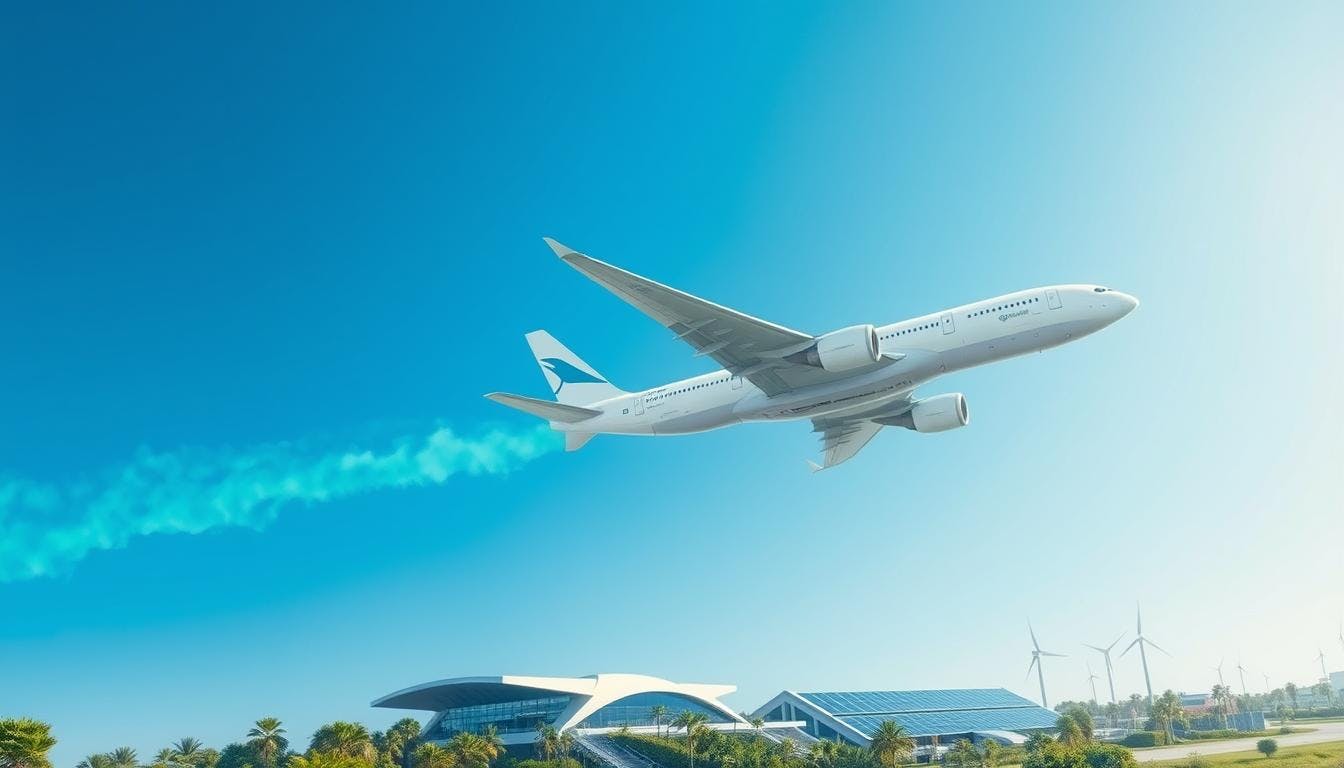
Boeing's collaborations and partnerships
Boeing is advancing the adoption of sustainable aviation fuels (SAF) through strategic partnerships and global collaborations. Recently, Boeing joined forces with the Asia-Pacific Economic Cooperation (APEC) to support SAF development in member economies. This initiative, in coordination with the U.S. Department of Transportation and the FAA, aims to expand SAF supply chains and develop supportive policies across the APEC region.
In the U.K., Boeing collaborates with Zero Petroleum to test new SAF technologies using a process that captures carbon from the air, integrating renewable energy in the production. This aligns with Boeing's overarching commitment to make commercial flights compatible with 100% SAF by 2030. Additionally, Boeing partners with the Roundtable on Sustainable Biomaterials, supporting SAF feedstock development in regions like South Africa and Brazil.
Boeing’s active involvement in organisations such as the World Energy Council and Corporate Coalition for Innovation & Technology toward Net Zero reflects its commitment to driving sustainable practices in aviation while fostering collaboration across sectors and countries.
Challenges facing sustainable aviation fuel adoption
The aviation sector is making notable strides to reduce its environmental impact, with the development of renewable jet fuel, or Sustainable Aviation Fuels (SAF), as a key focus. However, widespread adoption of SAF faces significant hurdles that must be overcome to make it a viable replacement for conventional jet fuel.
Technological and infrastructure challenges
Currently, SAF accounts for only a fraction of jet fuel usage, approximately 0.1% of the global demand. Expanding SAF production faces both efficiency and cost challenges. To scale SAF to meet higher demands, production processes need improvements to increase yield while reducing costs. Additionally, SAF must be compatible with existing aviation technology, ensuring seamless operation with current aircraft and fuel systems without requiring modifications to infrastructureSkies Mag.
Regulatory barriers
The regulatory landscape for SAF is complex and varies significantly across regions, presenting another barrier to its growth. A standardised, international regulatory framework would facilitate the adoption of SAF by providing uniform guidelines for production, blending, and usage. Clear, supportive policies are essential to encourage investment and innovation in SAF technologies and infrastructure, aiding in a smoother transition to renewable aviation fuel.
Boeing is addressing these challenges by investing in research, forming strategic partnerships, and advocating for policies that support SAF development. With an ambitious target to produce 3 billion gallons of SAF annually by 2030, Boeing aims to reduce aviation emissions by 20% in the coming decade.
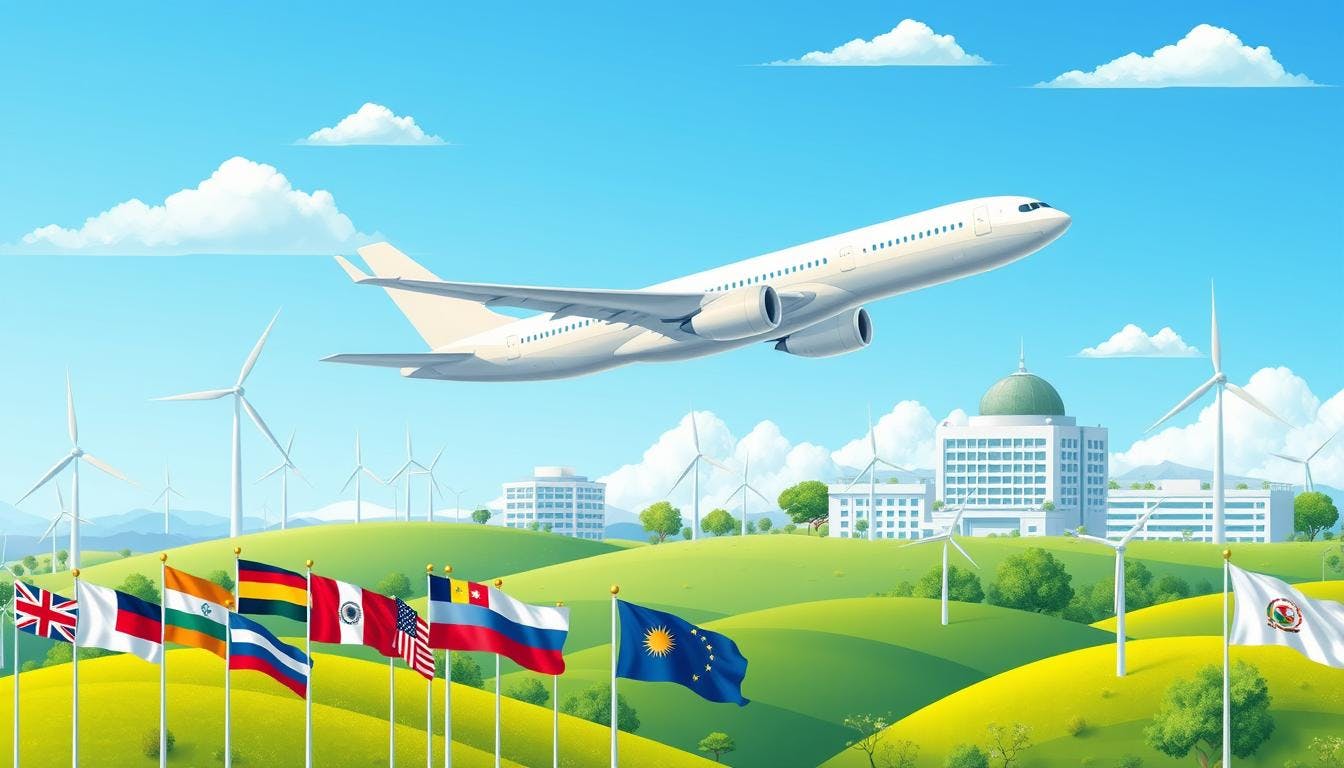
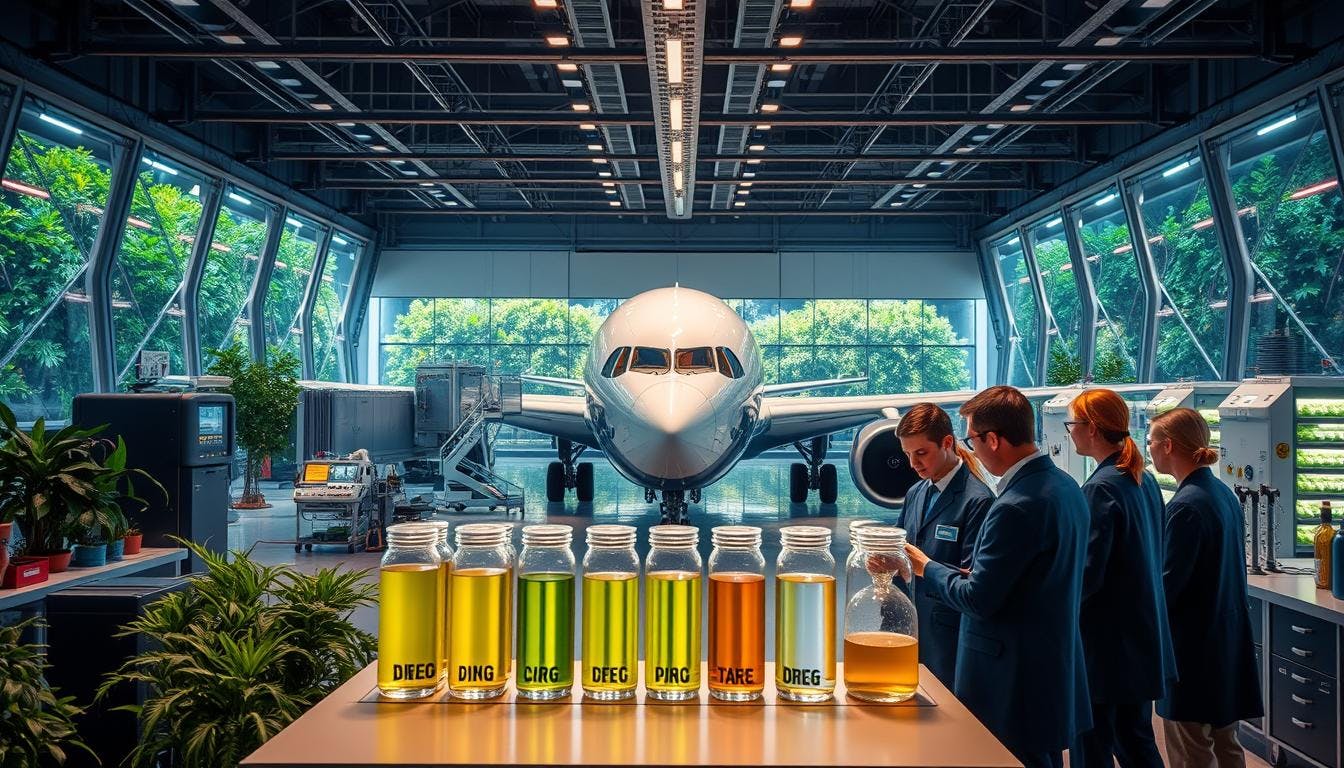
Future prospects for sustainable aviation fuels
Boeing is at the forefront of efforts to make aviation more sustainable, aiming to achieve 100% compatibility with sustainable aviation fuels (SAF) across its fleet by 2030. One promising method Boeing is investigating is Zero Petroleum's Power-to-Liquid technology, a process that synthesises fuel by capturing carbon dioxide from the air and combining it with hydrogen. This innovative approach could reduce carbon emissions by up to 80% compared to traditional fuels.
Innovations in SAF and aircraft efficiency
Boeing’s focus is not solely on SAF but also on advancing aircraft efficiency and modernising fleets. A significant milestone was achieved in 2018 when Boeing, in collaboration with FedEx, successfully operated a 777 Freighter using 100% SAF. This test proved that existing aircraft are compatible with SAF, highlighting its potential as a viable alternative fuel for commercial aviation.
Boing’s Long-term Goals for SAF Usage in the U.S. Boeing has set a short-term target to achieve a 20% SAF mix in its operations, aligning with the broader industry goal of net-zero carbon emissions by 2050. To support these targets, Boeing is actively partnering with governments and other industry stakeholders to scale SAF production and availability within the United States. This commitment to sustainable aviation positions Boeing as a leader in advancing a lower-emission future for the aviation sector.
Public perception and awareness
The aviation industry is steadily progressing towards sustainability, with an emphasis on educating the public about renewable air travel options. Airlines, alongside companies like Boeing, are working collaboratively to raise awareness through events and partnerships that emphasise sustainable aviation practices.
Educating consumers about sustainable aviation
Boeing actively engages in educational initiatives to promote sustainable air travel, highlighting the role of Sustainable Aviation Fuel (SAF) in reducing emissions. Through collaborations with airlines, policymakers, and industry forums, Boeing aims to enhance consumer awareness about SAF’s benefits and increase support for environmentally conscious air travel options.
The role of media in promoting awareness
Media plays an essential role in publicising the benefits of SAF and the industry's sustainability efforts. Boeing leverages its relationships with news outlets to communicate success stories and demonstrate its commitment to reducing aviation’s environmental impact. Media coverage on SAF and Boeing's initiatives helps boost consumer demand for renewable air travel and encourages the broader industry to prioritise sustainability.
Through these combined efforts, Boeing and its industry partners aim to create a greater demand for sustainable aviation practices, helping to steer the sector towards a low-carbon future.

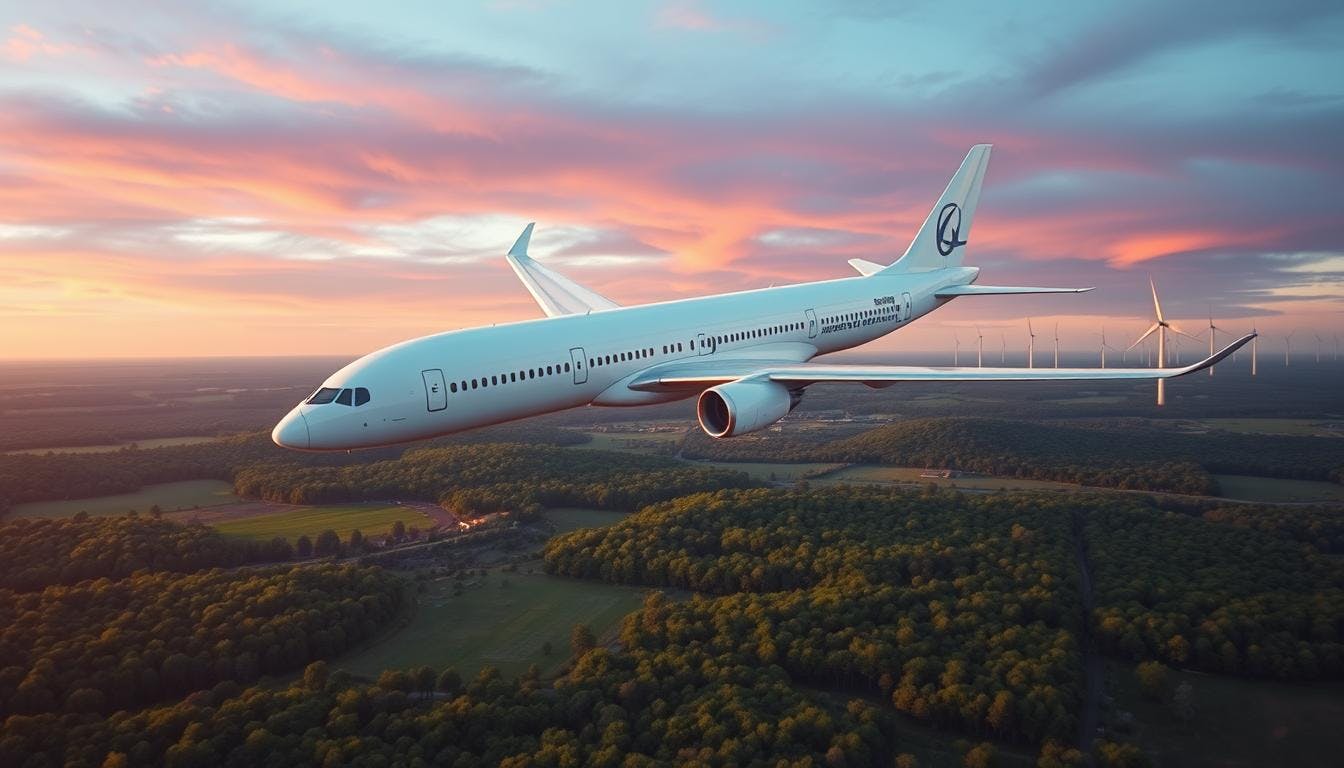
Case studies and success stories
Boeing is taking a leading role in advancing sustainable aviation practices in the USA, making significant contributions to the use of Sustainable Aviation Fuels (SAF). This marks a major step towards reducing the environmental impact of air travel.
Successful implementations across the US
Boeing partnered with Virgin Atlantic to achieve a milestone by completing the first 100% SAF flight across the Atlantic, using a Boeing 787 Dreamliner. This demonstrated that renewable jet fuel can substantially reduce the carbon footprint of air travel.
In addition to supporting external projects, Boeing has committed to its own operations. Since 2022, Boeing has purchased 7.6 million gallons of SAF for its planes in the United States, reinforcing the company’s commitment to sustainable aviation.
Lessons learned from early adopters
The early adoption of SAF has provided the aviation industry with valuable insights. These experiences have shaped future projects and partnerships, offering strategies to expand SAF usage and overcome barriers.
As the SAF infrastructure continues to grow in the United States, these early lessons will be crucial in furthering sustainable aviation efforts and making air travel more environmentally responsible in the long term.
This demonstrates Boeing's ongoing leadership in driving the shift to sustainable aviation and its efforts to encourage broader adoption of SAF throughout the industry.
Last Words
Boeing's efforts in advancing Sustainable Aviation Fuel (SAF) in the USA highlight the company’s strong commitment to reducing aviation’s environmental impact. The aviation industry's ambitious goal of achieving net-zero carbon emissions by 2050 depends heavily on the widespread adoption of SAF, and Boeing plays a crucial role in driving this initiative.
Key partnerships and achievements
Boeing has collaborated with governments, energy producers, and airlines to accelerate SAF adoption. This collective effort has led to significant progress, with over 450,000 flights worldwide using SAF, with up to 50% SAF blended into the jet fuel.
Encouraging industry-wide adoption
Boeing acknowledges the importance of collaboration in scaling SAF use. The company encourages stakeholders across the industry to address the challenges that hinder SAF adoption, such as technological barriers, infrastructure limitations, and the need for updated regulations. By working together, the aviation sector can fully leverage sustainable fuels, reducing carbon emissions and making air travel more sustainable.
Future initiatives by boeing
Looking ahead, Boeing is committed to continuing its investment in research to improve the compatibility of SAF with aircraft. The company also plans to expand its partnerships to increase the use of SAF. Moreover, Boeing advocates for policies that support the growth of sustainable aviation fuels, helping the industry meet its long-term goal of becoming carbon-neutral.
Boeing's leadership in promoting SAF is pivotal in helping the aviation sector reach its environmental targets. Their ongoing research and partnerships will be essential in ensuring the successful transition to a sustainable aviation future.
17 South Street
Auckland 1010
New Zealand
info@carbonclick.com- -
- X
Sign up. Be inspired. Get clicking.
Subscribe now to stay up to date with CarbonClick, carbon offsetting and climate action.
By signing up you agree to our Privacy Policy.


